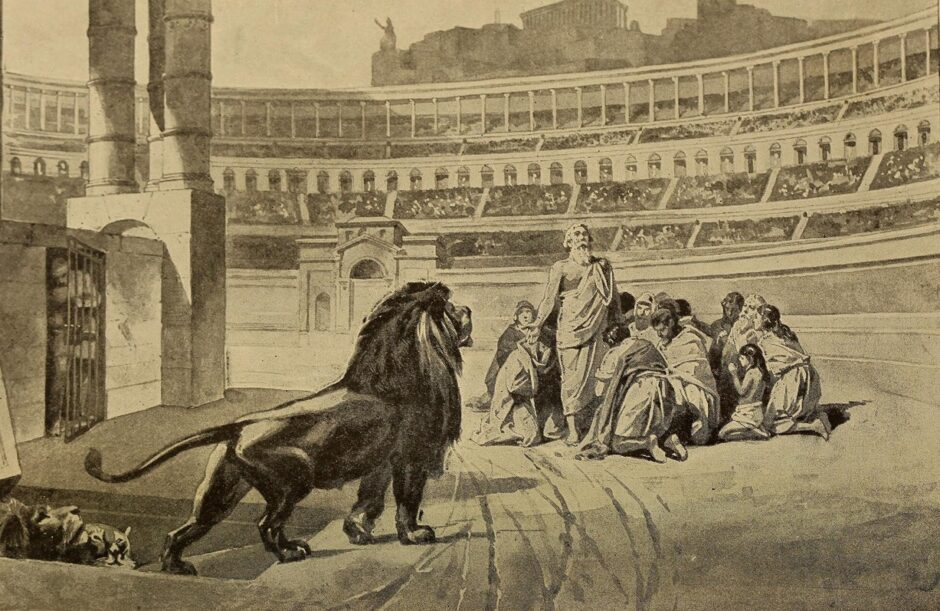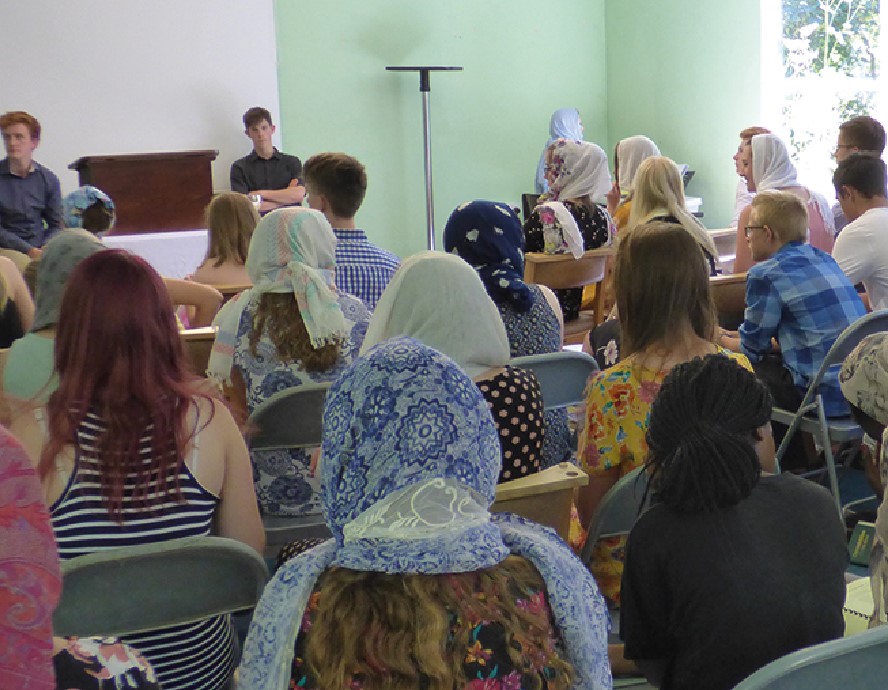THE NEW RELIGION of Christianity was regarded with suspicion by the Roman authorities. Christians didn’t believe in the Roman gods, they worshipped another God. They behaved differently and had different moral values. Their insistence that they were all of equal status was an affront to the strictly hierarchical Roman society. Their peculiar ritual of taking bread and wine as symbols of the body and blood of Jesus Christ sounded to the Romans like cannibalism. They were seen as a threat.
Two thousand years later, Christianity has changed. Modern Christianity is a broad spectrum. At one end is the respectable mainstream, who may be barely distinguishable from their non-religious neighbours. At the other end are fanatics, with extreme views and lifestyles. You may have heard harrowing stories about so- called Christian cults which destroy lives. It’s necessary to beware of these cults.
The problem is, true Christianity always has been seen as extreme, and it is still viewed by some as a dangerous cult, even today.
How can you decide what is a cult, and what is the genuine faith of the Bible?
Psychologists identify certain characteristics of cults. Let’s compare these characteristics with what the Bible says about true Christianity.
A cult will have a charismatic leader. This is a key indicator. True Christians revere Jesus Christ as their ‘head’ (Ephesians 4:15), their high priest (Hebrews 2:17), their saviour (Philippians 3:20) and their Lord (John 13:13). No other personalities matter. It’s clear from the account of the early church that the apostles themselves did not lead by force of personality—for example the great Apostle Paul appears to have had little charisma (2 Corinthians 10:10). A true Christian community should not be dominated by a personality.
A cult will recruit by promising a new start as part of a chosen group. To be a disciple of Christ is exactly this! ‘You are a chosen race, a royal priesthood, a holy nation, a people for his own possession, that you may proclaim the excellencies of him who called you out of darkness into his marvellous light’ (1 Peter 2:9). You don’t have to be special—what you need is to believe God and obey Him.
Cults often use ‘rites of passage’ to reinforce allegiance. The start of the life as a follower of Christ is baptism—a simple but hugely profound public ceremony that involves symbolic ‘burial and resurrection’ by being dipped in water (Romans 6:3–4). Some call this a ‘rite of passage’.
A cult will often recruit by means of ‘love-bombing’—extravagant shows of affection and flattery which make the victim feel special and wanted. The fact is, God loves us more than we can appreciate. So much that He gave His Son to die for us. Inevitably His followers will be loving people (John 13:34–35). But to become a Christian is a huge and life- changing commitment, and no one should be baptised until they are convinced of the truth of the Gospel and fully understand what they are doing.
Cults will seek to isolate their members from friends and family on the outside, often depicting the outside as evil. According to Jesus Christ and his apostles, the world is a place of evil (John 7:7). Jesus said that being his disciple would result in tensions with those outside the faith (Matthew 10:35–36). Christians are urged to be separate from the world (2 Corinthians 6:17). But they are also told to love their neighbours (Luke 10:25–37) and shine as lights in the world (Matthew 5:16). This is not compatible with being isolated from friends and family.
Cults will require inordinate sacrifices from their members, often in the form of money. Jesus Christ sacrificed his life for us, and he requires that we give nothing less than our lives to him (Matthew 16:24–27). However, the example of the early church shows that its activities were funded by free will offerings, and there was never coercion to give money or anything else (1 Corinthians 16:2).
Cults believe that the ends justify the means. That is, they are justified in requiring any form of activity from their members, however strange or immoral, in the service of their cause. Christianity on the other hand is a life governed by a wholesome moral code, and no one is entitled to require behaviour that betrays that code: ‘As he who called you is holy, you also be holy in all your conduct’ (1 Peter 1:15).
Cults will discourage members from expressing doubts or questions. The Bible abounds with accounts of people expressing doubts and fears, questioning and learning. Christians should be encouraged to talk about their doubts and questions, that’s how we learn.
This magazine is produced by Christadelphians. We are a small group of Bible believers who take our faith very seriously. We have been labelled a cult by some. But on the contrary, we see ourselves as a fellowship of people whose faith and practice is as close as you’re likely to get to that of the First Century Christians. We invite you to take a look at us, and decide for yourself.




